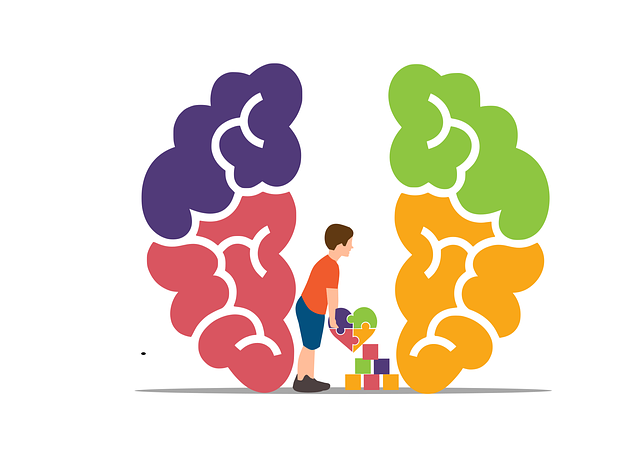Mental wellness, influenced by emotional stability and adaptability, is crucial in a stressful world. Aurora Interpersonal Issues Therapy offers effective tools for managing challenges through risk assessments, creating safe environments, and promoting therapeutic outcomes. Journaling, integrated into this therapy, empowers individuals to explore thoughts and emotions, develop coaching programs, gain personal insights, prevent burnout, set self-care goals, and enhance mental health awareness. Starting an Aurora Interpersonal Issues Therapy Journal, focused on specific goals or stigma reduction, provides structure for self-awareness, progress tracking, and consistent healing through regular writing.
Mental wellness is integral to our daily lives, shaping our experiences and interactions. Understanding its impact is crucial for fostering resilience and overall well-being. This article explores the powerful journalings exercise, Aurora Interpersonal Issues Therapy, as a therapeutic tool to navigate interpersonal challenges. We’ll provide practical tips on how to begin this journey of self-reflection, encouraging readers to take control of their mental health through structured journaling. Unlock your path to clarity and growth with these guiding steps.
- Understanding Mental Wellness and Its Impact on Daily Life
- The Power of Journaling as a Therapeutic Tool
- Practical Tips for Starting Your Aurora Interpersonal Issues Therapy Journal
Understanding Mental Wellness and Its Impact on Daily Life

Mental wellness is a crucial aspect of our overall well-being, influencing how we think, feel, and act in our daily lives. It encompasses emotional stability, psychological resilience, and the ability to navigate life’s challenges with adaptability and positivity. Understanding mental wellness involves recognizing its impact on various facets of our existence, from relationships and work performance to personal goals and decision-making processes.
In today’s fast-paced world, where stress and interpersonal issues are prevalent, prioritizing mental wellness is more important than ever. Aurora Interpersonal Issues Therapy offers valuable tools and techniques to address these concerns, promoting healthy coping strategies for stress reduction methods. By raising public awareness campaigns development around mental health, individuals can gain insights into recognizing signs of distress and seeking appropriate support. Additionally, a thorough risk assessment for mental health professionals ensures the safety and well-being of both practitioners and clients, fostering an environment conducive to effective therapy.
The Power of Journaling as a Therapeutic Tool

Journaling has emerged as a powerful therapeutic tool, offering individuals a safe and intimate space to explore their thoughts and emotions. It is an effective method for mental wellness coaching programs development, helping folks navigate and manage their interpersonal issues therapy needs. By putting pen to paper (or fingers to keyboard), one can gain profound insights into their mindset, identify patterns of thinking, and process complex feelings. This self-reflection fosters personal growth and promotes a deeper understanding of oneself, which is crucial for burnout prevention.
Through regular journaling practices, individuals can create a valuable record of their mental health journey. It allows them to track their emotions, set goals for self-care routine development for better mental health, and celebrate milestones achieved. This process not only enhances awareness but also empowers people to take charge of their mental wellness, ensuring they have the tools to navigate life’s challenges with resilience and grace.
Practical Tips for Starting Your Aurora Interpersonal Issues Therapy Journal

Starting your Aurora Interpersonal Issues Therapy Journal is a powerful step towards self-improvement and healing. Here are some practical tips to guide you:
1. Define Your Purpose: Begin by understanding why you’re journaling. Are you aiming to track your emotional journey, explore interpersonal dynamics, or work through specific therapy goals? Clarity will make the process more meaningful and focused. For instance, if you’re focusing on mental illness stigma reduction efforts, documenting your experiences can help normalise your feelings and enhance self-acceptance.
2. Create a Structured Framework: Organise your journal with sections that cater to different aspects of interpersonal issues therapy. You could include prompts for identifying triggers, reflecting on emotional responses, recording significant interactions, and practicing emotional intelligence exercises. This structured approach facilitates self-awareness exercises and makes it easier to track progress over time. Remember, consistency is key; aim to write regularly, even if it’s just a few sentences each day.
Mental wellness journaling, particularly through practices like Aurora Interpersonal Issues Therapy, offers a powerful means to understand and navigate daily life’s challenges. By expressing thoughts and emotions on paper, individuals can gain valuable insights, improve self-awareness, and foster resilience. The article has provided practical tips to initiate this therapeutic journey, encouraging readers to embrace the transformative potential of mental wellness journaling for improved overall well-being.








